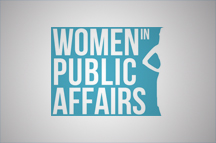The public affairs industry has made little progress in promoting inclusive cultures over the last year according to latest figures from the annual Women in Public Affairs (WiPA) survey.
The research found that over two thirds (69%) of women feel that their company isn’t transparent about pay and progression and 4 in 5 (84%) are less likely to apply for a job that doesn't advertise salary bands. In addition, nearly two-thirds (63%) said they were uncomfortable asking about maternity policies in interviews.
The survey also found that sexual harassment is an ongoing issue in the industry. Last year’s findings revealed that 1 in 4 (27%) women in the industry had experienced sexual harassment at work, rising to a third (34%) this year. Sadly, over three quarters of respondents (78%) claim to have experienced discrimination, bias, or sexist remarks in the workplace.
In response to 2020 trends, the survey revealed that nearly two-thirds (65%) of respondents felt working from home during COVID-19 had decreased their mental wellbeing, even though three-quarters (77%) of respondents felt that their organisation had responded well to the issues posed by the pandemic. In response to Black Lives Matter, even though most employers (73%) took action, nearly a third (31%) of respondents were dissatisfied with the industry’s overall response.
In the New Year WiPA will be launching a series of inquiries into sexual harassment, pay transparency and diversity at senior levels in the public affairs industry and is calling on industry leaders to step forward and support.
WiPA Chair, Laura Sainsbury said: “Yet again research shows that the public affairs industry isn’t listening or adapting as quickly as it should. We know many organisations are doing great work to create more inclusive and transparent cultures but more needs to be done. COVID-19 and the Black Lives Matter movement should be a catalyst for change, we need to reset the perception of the industry and work together to create an environment that is open to all.”
Opinium Chief Executive, James Endersby said: “2020 has been a momentous year for all. While the pandemic has shifted us to working from home, many women in Public Affairs have struggled to draw boundaries between work and rest. The Black Lives Matter movement has also shaken up the industry, with a diverse and inclusive culture becoming increasingly important – although there is still a long way for the industry to go. To top it off, women in the industry are facing persisting issues with progress and support, with not enough transparency about pay, progression and maternity leave policies. With eight in ten women having experienced discrimination or bias in the industry, this is a call to action for all, including the men in the industry, to be create awareness and offer support for women in Public Affairs.”
The survey received 144 responses from women working in the industry, 70% of whom are between the ages of 18 and 34. The breakdown revealed a lack of diversity with 91% of respondents identifying as White and 26% from a minority group.
The socio-economics also revealed that the majority of female respondents are based in London (86%), and that over half (54%) attended a comprehensive, with 26% having attended an independent/private school. Furthermore 97% have an undergraduate degree or above.













